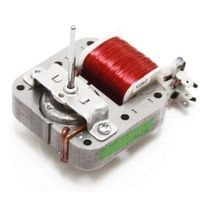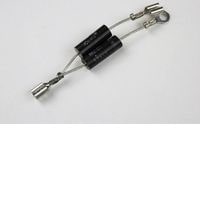Lg Microwave Is Loud Or Noisy. LG microwaves are some of the most technologically advanced models available today. However, as with all other LG appliances, over time these individual parts can break down or become dislodged which can cause abnormal microwave noise.
The type of noise your microwave is generating, the area where it is coming from, and whether it is affecting the overall heat level will help to diagnose what part has actually malfunctioned and caused the fault to present itself.
We hope that this helps you to resolve any issues should they arise with your appliance.
Lg Microwave Is Loud Or Noisy
Under normal circumstances, a microwave magnetron produces low noise. However, if the magnetron is damaged or close to burning out, it may start to produce high-pitched sounds or growling sounds. If the magnetron starts to make such noise, it indicates that it is nearing the end of its life or might be defective.
Magnetron Issue
Microwave ovens use magnetrons that typically generate high voltage, high current signals to produce microwaves.
Normal operation may make low humming noises, but loud noises usually indicate that the magnetron or microwave oven is about to give out or has already failed.
If this happens on a regular basis, it might be time to replace your machine. Before doing so, test the diode and replace it if it’s blown.
If this doesn’t fix the issue, you may need a new magnetron, although rare variations of materials have been known to cause such symptoms as well.
Defective Stirrer Motor
A microwave with a worn-out stirrer motor will begin to make cracking or grinding noises while in the process of heating food inside. To determine if the stirrer motor has malfunctioned, check to see if it’s getting electricity by testing it with a voltmeter.
If the stirrer has steady power but makes noise or will not turn freely when activated, then you need to replace it with a new one that’s purchased from an appropriate source.
Faulty Exhaust Fan Motor
To determine if the fan motor is defective, remove it from the microwave and try turning its blades by hand. If the blades do not turn freely, replace the fan motor.
If the blades do turn freely, use a multimeter to test whether or not electricity flows through its wires.
If electricity does pass through it properly, you can assume that there’s an internal break inside that needs fixing.
Damage Cooling Fan
If your microwave is producing a weird sound, the problem may be with the cooling fan. This fan is located inside the cabinet and is used to cool down the magnetron.
Disconnect power from the unit before removing the cover, then remove and inspect the housing to ensure that no foreign objects are contacting the blades of this fan. Ensure this fan runs smoothly without damage or wear, then replace if necessary.
High Voltage Diode Fault
If your microwave is making an unusual humming sound, you might have a problem with the high voltage diode. This component is part of the high voltage circuit along with the capacitor and magnetron.
The diode access will require the removal of the cabinet. Disconnect power and discharge the high voltage capacitor to prevent an electrical shock.
You can then locate the diode and use a multi-meter to test for continuity in both directions. There should be continuity in only one direction, if not then it will have to be replaced.
Related Guides

